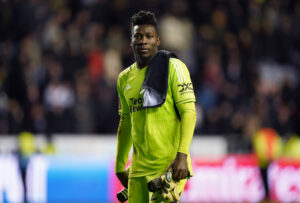International football, or soccer as it’s known in the US, is one of a few sports that were never completely shut down by the COVID-19 pandemic. Sure, major leagues like the Premier League, La Liga, the MLS and Italy’s Serie A took breaks, but some small leagues went on undeterred by the Coronavirus.
Still, to be clear, there’s no denying the pandemic has had a tremendous impact on international football as a sport. Clubs have been going out of business left, right and centre. Players have been told to lower their expectations while fans will have to wait longer before they’re allowed to attend live matches.
In the meantime, here’s how international football leagues are operating in 2021.
The State of International Football in 2021
Home and Away Matches Without Fans
Many football leagues around the world are keen to complete their seasons without taking COVID-19 breaks. To avoid suspensions from governments, leagues like the MLS, the English Premier League and Germany’s Bundesliga have been holding games without fans.
Little has changed in the way of rules, league formats and timeframes. The standard football game takes 90 minutes without counting breaks and added time. In Europe, most leagues have a home and away format, with each team facing each opponent in the same league at least twice in a season.
Occasionally, these leagues have welcomed a small number of fans to their stadiums. But as new COVID-19 waves increase, most franchises have resulted to holding matches with zero fans in the terraces. Adhering to COVID-19 measures is vital for football clubs.
Failure to comply can lead to league suspensions. And for many teams, this would mean a loss of revenues from sponsors. Across Europe, a huge proportion of franchises are sponsored by sports betting firms. Bestbettingsites.com features some of them. It also explains how these bookies set their odds and whether you should use a free online betting calculator to increase your profits.
Strict COVID-19 Tests
Not only do major football leagues test their players and staff regularly, but they also enforce preventive measures strictly. For example, all players are required to wear a mask until they get into action. That means they have to wear masks while on buses, in the tunnels and while seated on the benches waiting to be substituted.
In the Premier League, COVID-19 compliance officers now have more powers than they did last year. Although they work with two clubs each, they’re required to ensure every team has “clinical passports” for players and staff members.
Compliance officers aside, Premier League teams must also travel with three coaches at all times. Vitally, all of them must have negative COVID-19 tests. That way, teams don’t have to suspend training in case players are exposed to the pandemic through a staff member.
No Changes to EURO 2021
Many experts have been questioning the practicality of EURO 2021 amid the ongoing pandemic. But EUFA is convinced the competition can go ahead without worsening the spread of COVID-19 in the 12 participating countries.
UEFA’s president, Aleksander Ceferin, held a virtual meeting with representatives from all participating nations in January to confirm the event would go on. In the meeting, Ceferin said EURO 2021 was an important tournament in helping fund grassroots football throughout the continent.
No country has expressed a desire to withdraw from the tournaments. And if they did with so few months into the competition, EUFA could ask for significant compensations. That said, the football organization is allowing host countries to decide whether they want fans in their stadiums or not.
International Football in Limbo
Although club football is going on undeterred, questions are being asked about the need to hold international fixtures amid the pandemic. A handful of famous coaches like Manchester City’s Pep Guardiola and Liverpool’s Jurgen Klopp are against holding these games.
Guardiola believes international football will lead to the spread of COVID-19. He argues travelling will expose players to the virus and this could impact the progress club football has achieved so far in taming the pandemic. Klopp, on the other hand, believes players need to prioritize their employers in these difficult times.
Klopp’s main concern, though, is that players in the Premier League and other major European leagues will need to self-quarantine after returning from their home countries. This will, in turn, affect the performance of most teams, especially where high-value players have to quarantine.
If FIFA suspends international games, South American teams will have to wait for a while before playing World Cup qualifiers. In Europe, European qualifiers featuring Belgium and Wales, Spain v Greece and England against San Marino will be affected.
UEFA to Make Venue Adjustments
Last year, EUFA was so determined to complete the Champions League and Europa League that it scrapped out its regular format and played matches in a single venue. This year, the organization is bringing back two-leg matches held at each team’s stadium.
But it’s prepared to make adjustments where necessary. A case in point is finding a new venue for the round of 16 games between Liverpool and Leipzig. Germany imposed travel bans from the UK in January, meaning Liverpool players couldn’t travel to Leipzig.
On the flip side, Leipzig players could travel to England but they would have to quarantine for ten days upon their return. To avoid inconveniences, the two sides settled for the Puskas Arena in Budapest as their host stadium.
Liverpool won the first match 2-0 but RB Leipzig will have a chance to overturn the aggregate on Match 10 when the two sides return to Budapest. With the quarters and semis yet to be played, UEFA is prepared to make more adjustments should British teams face off with clubs from countries with travel bans from the UK.
Grassroots and Youth Football Leagues on Hold
While many popular football leagues have been holding games without fans, grassroots and youth tournaments haven’t always had the same pleasure. In the UK, prime minister Boris Johnson ordered all U18 football competitions to take a mandatory break until the country reduced the spread of COVID-19 back in January.
Around the US, youth soccer tournaments have similar problems. In California, youth soccer can go on if local countries have fewer than 14 cases per 100,000 people. In Texas, everything is back to normal after Gov. Greg Abbott opened all services. That means both professional and amateur soccer leagues can get back into action and they don’t have to follow strict COVID-19 prevention measures.
Main Photo






